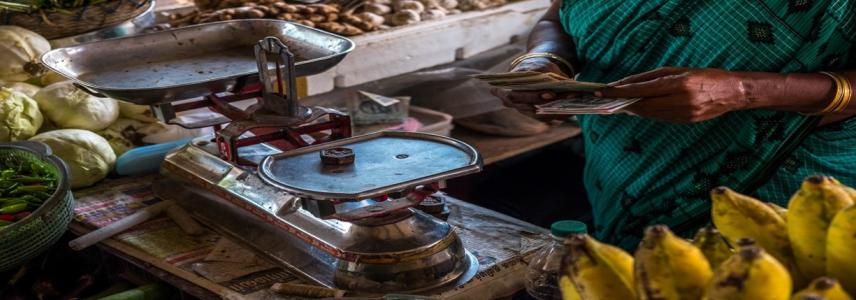Impact investors and digital finance offer opportunities for smaller companies

European traders are seeing professionalisation throughout the fruit and vegetable supply chain. Financial strength is an aspect that remains important for exporters’ success. Smaller companies can get access to finance via credit providers. These often ask for a commitment to sustainable production. But more and more producers are also using digital platforms to get access to finance and agricultural inputs.
The fresh fruit and vegetable trade has become a specialised business. To attract potential buyers’ attention in Europe, you need a well-organised supply chain and an attractive offer. Fresh products sent to Europe must be handled following strict rules at all stages of the supply chain, from production to sorting and quality management. This asks a lot of companies, especially as the COVID-19 pandemic has made the supply chain more complex due to unreliable logistics and a lack of workers. The need for innovation and efficiency is larger than ever before.
2 things that have become important for efficient supply and quality are financial strength and innovation power. For small export companies in developing countries, financial strength and innovation are not easy. We see large, well-financed agricultural corporations becoming more dominant in the market. This means that small companies have to get creative. Some smaller companies have been able to invest in their supply chain with the help of European partnerships. But not all companies in Europe are willing to put so much effort into getting suppliers market-ready. Many prefer suppliers that are already prepared for the market.
Impact investors
Impact investors are a good option for smaller companies that want to take their business to the next level. Impact investors aim for positive growth that benefits the local community. For example, Goodwell Investments and partners invested over 2 million USD in East Africa Fruits Co. from Tanzania. With this investment, they financed smallholder farmers. They also connected local farmers and the market using agri-technology. There are several credit providers that invest in companies with a social impact. Examples include Root Capital and Oiko Credit.
We expect finance in the fresh trade to become even more linked to sustainable production and sourcing. Like European retailers and sourcing companies, business financers often ask for a commitment to certain environmental and social practices. Companies can show this via certification. For example, Triodos Bank provides loans of up to 70% of the value of an export contract for companies with sustainability certification. Examples of sustainability certifications include organic, fair trade, Utz or Rainforest Alliance. Another financer that looks at sustainability is FMO, a Dutch entrepreneurial development bank. FMO aims to support the United Nations Sustainable Development Goals when providing loans, private equity or guarantees.
Digital finance solutions
Besides capital from investors, there are other new forms of financing. The future of financing is likely in digital solutions, especially for small suppliers in developing countries. Platforms such as Agri-wallet, TruTrade and Farmerline give farmers a digital profile. Farmers then have access to credit so they can buy agricultural inputs. Digital solutions also provide access to information on improved agricultural practices. And they can link farmers to the market. Better organisation at the start of the supply chain will eventually increase export chances.
To find more about financing and organising your business, read our:
ICI Business wrote this news article for CBI.
Stay informed
To stay informed on the latest developments in the processed fruit and vegetables sector, subscribe to our newsletter.